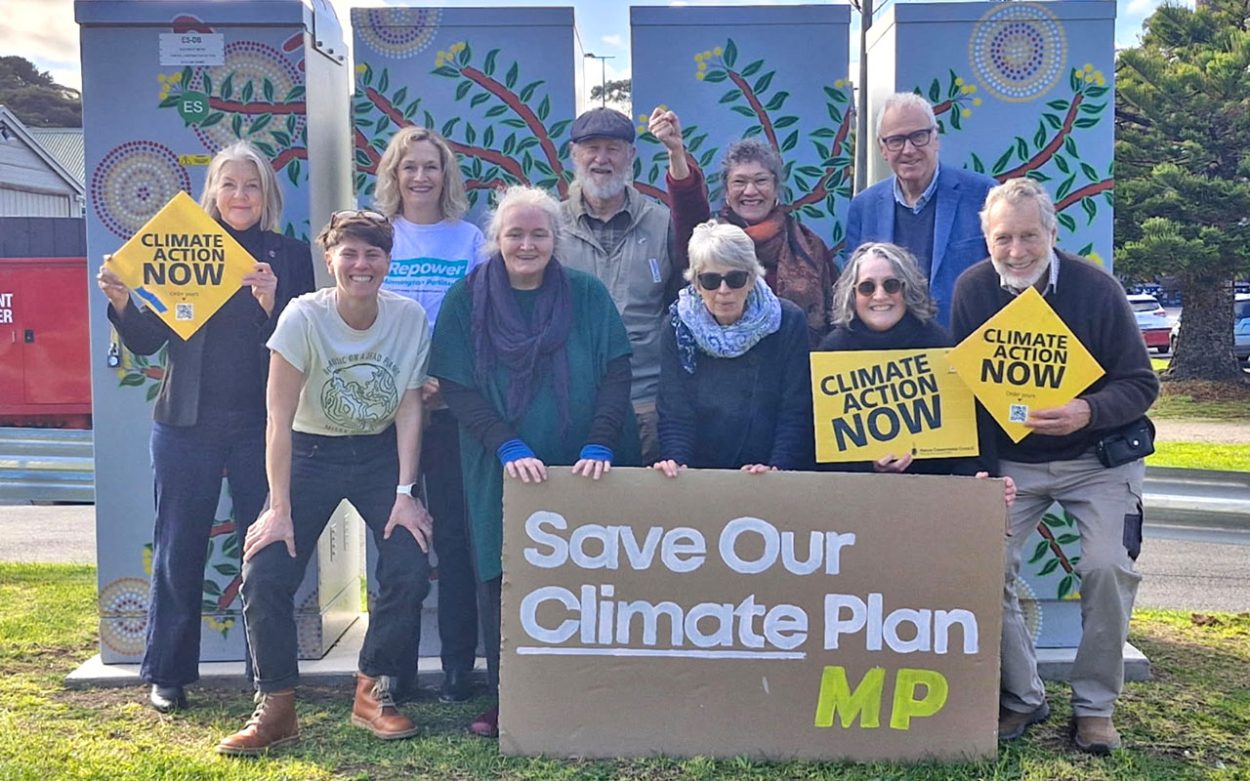A NEW “climate plan” is set to be presented to councillors at their 2 September meeting, filling the void created by the ditching of the shire’s Climate Emergency Declaration and the Climate Action Plan in April.
The shire’s climate plan was adopted in August 2020, one year after the shire declared a climate emergency. The plan entailed a ten-year program to reduce greenhouse gas emissions and lessen the effects of climate change.
The newly elected council first questioned the plan in January this year with a motion passed for shire officers to prepare a report to help councillors make informed “strategic and budgetary decisions” regarding its climate emergency declaration.
This report was presented at the 22 April council meeting where Cr Paul Pingiaro tabled a motion to scrap the declaration along with its associated plan. At the time he stated it was “never been about denying or dismissing climate change”, but “ensuring that every dollar we spend delivers something tangible, measurable and real” (Shire pulls plug on climate emergency plan, The News 29/4/25).
Mayor Cr Anthony Marsh said the decision to overturn the council’s climate emergency declaration “reflects a more outcomes-based approach to climate action”.
Cr Max Patton, who voted against the motion, noted the declaration plan was adopted with 92 per cent of the community’s support. Without it, he said there were no targets or implementation strategy, but rather “vague talk of focus and local outcomes without the structure to deliver any of it”.
Environment groups across the peninsula condemned the abandonment of the plan and have been lobbying for its reinstatement. Notably, groups have united under one newly formed umbrella group; Peninsula Climate Alliance (PCA), currently consisting of 16 environment groups.
As recently as 2 August environment campaigners gathered at a community meeting at Flinders Civic Centre to demand the reinstatement of the Climate Emergency Declaration and the Climate Action Plan. Marsh, who was present at the meeting, stated “There is absolutely no intention to reinstate a Climate Emergency Declaration” (Climate action and arts funding the focus of community meeting, The News 12/8/25).
While Marsh points out that the climate change budget is basically unchanged, the issue is the scrapping of the plan meant the framework for the expenditure of the budget was dismantled.
“By removing the overarching strategy and plan, we instead will have an adhoc, uncoordinated collection of random projects and ideas that may or may not happen,” said chair of the PCA, Greg Holland.
“The problem is that while they say they still will be spending more money on some forms of climate action it is nothing like the effective, expertly researched and well-resourced plan we had that addressed mitigating climate change.”
Pingiaro has now proposed a new climate plan in the form of a motion to be presented to councillors on 2 September called the “Mornington Peninsula Climate Resilience Plan”.
The motion, seen by The News, directs the shire’s CEO Mark Stoermer to present a report to the council meeting scheduled for 2 December 2025, “setting out a proposed framework for the development and implementation of a Mornington Peninsula Climate Resilience Plan”.
The extensive proposed motion calls for a framework that aligns with the council’s statutory obligations under the Local Government Act 2020 (Vic), Climate Change Act 2017 (Vic) and Public Health and Wellbeing Act 2008 (Vic).
The motion calls for a framework that must:
- Focus on practical, place-based, costed and measurable outcomes for climate adaptation, hazard mitigation, biodiversity protection and sustainable infrastructure.
- Integrate with existing strategies, policies and programs, including coastal asset protection, drainage and stormwater upgrades, renewable energy initiatives for council assets, erosion management overlays and biodiversity corridor enhancements.
- Avoid duplication of federal or state responsibilities, targeting local priorities within council’s direct influence where the greatest community benefit can be delivered.
- Include a clear monitoring and reporting approach with proposed indicators, baselines and reporting frequency.
The motion also calls for the investigation of external partnerships, an audit of current climate-related projects and the recommendation of priority projects for the next four years, with indicative costs and potential funding sources.
The last section of the motion states that “For the avoidance of doubt, this resolution does not reinstate any prior ‘Climate Emergency’ declaration or plan, but seeks a practical, locally focused resilience framework for council’s consideration”.
Holland, speaking as chair of the Peninsula Climate Alliance, told The News:
“The concept of the proposed climate resilience plan is a positive step, but it is badly flawed.
“It does not address the shire’s responsibilities to reduce carbon emissions. It also does not ensure the continuation of the extensive community consultation that was a hallmark of the previous Climate Emergency Declaration and Response Plan.
“Our view is that the Climate Resilience Plan should be based on and build off the previous plans. By doing this, the new plan will benefit from the enormous amount of community and expert feedback that already has accrued.”
Holland’s view is echoed by Patton who told The News:
“The better choice here would have been to refer the existing plan to a strategic review rather than discarding it completely. The course we have taken since 22 April has drawn community angst and unnecessarily created a policy vacuum.
“We had a plan. While it may not have aligned with the view of this new council, a strategic review alongside community could have reshaped it collaboratively. I am unconvinced this newly proposed path is aligned with best practice in carrying out our remit in this important policy area.”
First published in the Mornington News – 19 August 2025


